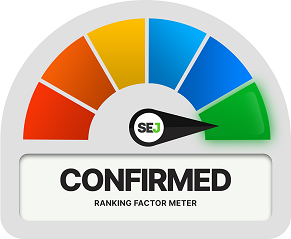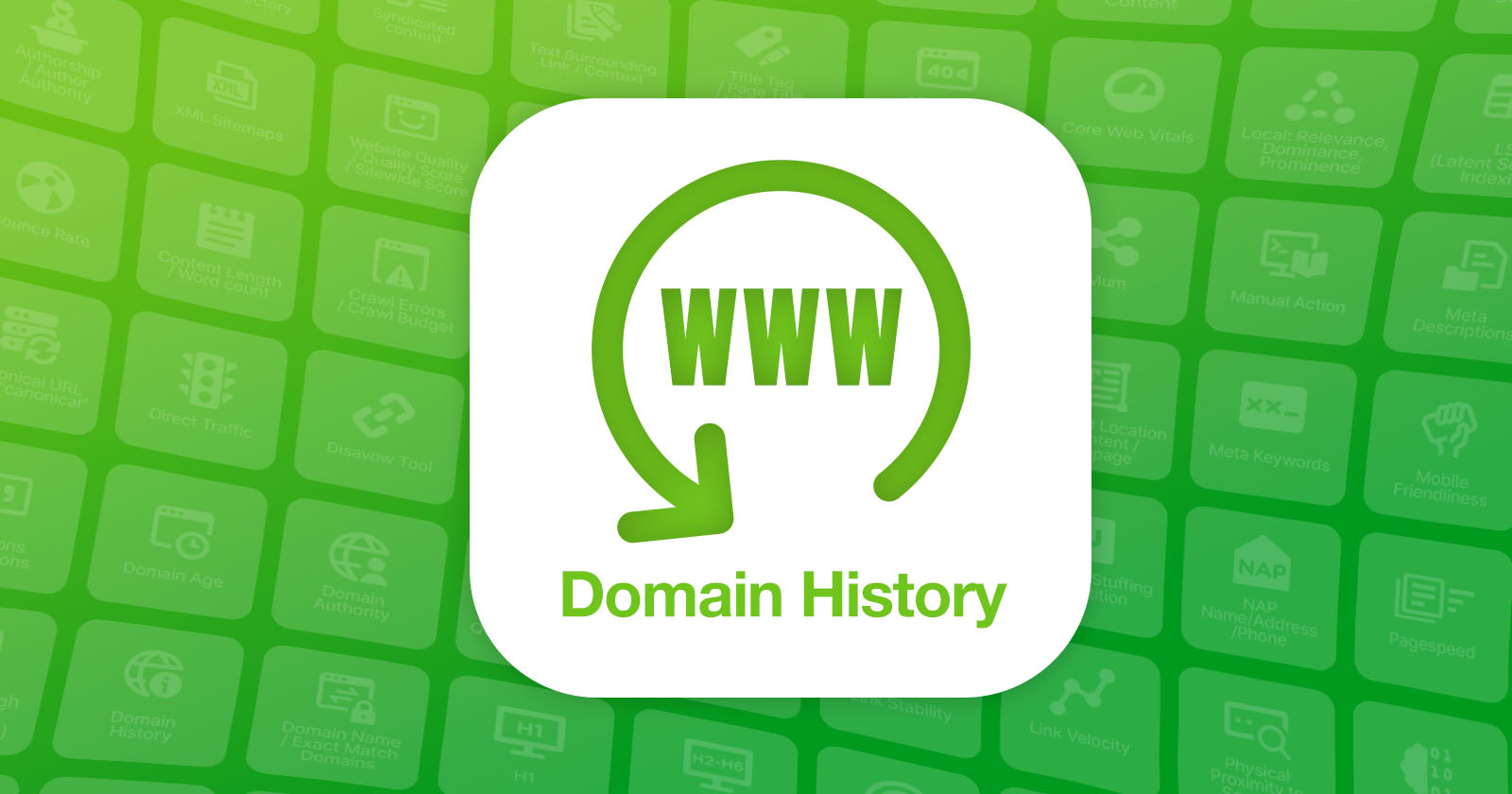Unless you’re lucky enough to register a domain name no one has thought of before, chances are a domain registered today will have a history attached.
Is there any reason for the new domain owner to be concerned with what the previous owner(s) did with it?
Yes – a domain’s history matters, even after ownership changes hands and it gets repurposed into a new site.
The truth is domain history matters more than site owners may think. Unfortunately, some don’t learn that until it’s too late.
Read on to learn more about the claims regarding domain history as a ranking factor. Then, we’ll look at the supporting evidence from Google.
The Claim: Domain History Is A Ranking Factor
Domains can potentially have many different and varying uses throughout their lifetime.
A domain name used by a legitimate business today may have previously been used by a payday loan website, a piracy site, or any other type of website that Google frowns upon.
Despite the website itself being new, domain history is said to be a factor for Google’s search results in the present day.
That means a new website could be held back in Google searches before it even has a chance to rank.
Is this a genuine concern? Or is it all theoretical?
Here’s what the evidence says.
The Evidence: Domain History As A Ranking Factor
On several occasions, Google has addressed the topic of domain history and its impact on rankings.
It’s consistently stated that how a domain was used in the past can be a factor in how Google treats it today.
The impact can range from moderate to severe. The most severe issue a site owner could run into is acquiring a domain with a history of unresolved manual actions.
Google’s manual actions don’t go away on their own, even after the previous owner sells the domain or lets the registration lapse.
If the penalties aren’t dealt with, the domain’s next owner may find their website demoted or deindexed right out of the gate.
This issue is discussed in a video with former Googler Matt Cutts, who recommended researching a domain before purchasing it.
A site owner can immediately determine if their domain has a manual action against it by checking the manual action report in Google Search Console.
That’s the worst-case scenario. But it’s only a temporary setback, as all manual actions can be resolved.
In other cases, a domain may not have a penalty associated with it but might still have a negative history with Google.
In those cases, the site may still be impacted in search results. Google’s John Mueller says that the issue will resolve itself over time.
According to Mueller, a domain with a brief history of bad activity is not a cause for concern. If the negative history dates back 10 years or more, that may be more difficult to recover from.
The history of any domain can be looked up at Archive.org.
Domain History Is Definitely A Ranking Factor

Based on explicit statements from Google, there is proof that domain history plays a role in search rankings. This factor should be seriously considered before acquiring a previously registered domain.
While the effects can be mitigated over time, past domain usage can and does influence how sites are ranked in the present. This is generally more likely to manifest as a negative ranking factor than a positive one.
Domain history’s status as a ranking factor is definitively confirmed.
Featured Image: Paulo Bobita/SearchEngineJournal
